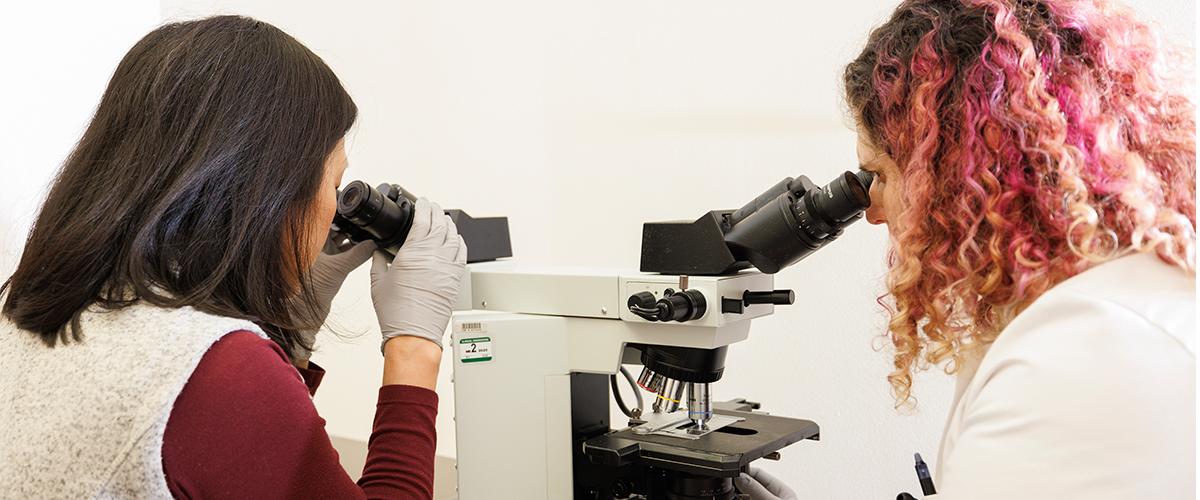
Program Overview
To complement our common core pediatric nephrology curricula, we tailor training plans that are developed to meet the individual needs and goals of each fellow. Duke University is a world-class tertiary care medical center with renowned faculty and staff encompassing all disciplines of medicine and science. Importantly, we serve a diverse patient population and foster an encouraging clinical and academic learning environment that will prepare fellows to care for the spectrum of pediatric kidney disorders.
- Positions offered per year: One
- Program duration: Three years
- Accrediting body: Accreditation Council for Graduate Medical Education (ACGME)
- Match participation?: Yes
Clinical Training
During the first year, the pediatric nephrology fellow has primary responsibility for managing the inpatient team and consult service. The fellow directly supervises the pediatric residents and medical students on the Nephrology elective. Rounds are made with experienced faculty on a daily basis. To complement this comprehensive inpatient experience, the fellow will also participate in our robust outpatient program including their own continuity clinic as well as clinics in fields spanning general nephrology, dialysis, transplant, chronic kidney disease, hypertension with ambulatory blood pressure monitoring, SLE, tuberous sclerosis, outreach and urology. It is during this year that the fellow acquires the majority of the clinical skills and expertise required to practice effectively and independently. The fellow also will start to develop a research interest and hone their grant writing skills.
During the second and third years, the fellow spends 80% of their time in research and 20% in clinical duties. These duties are intentionally reduced to allow focus on academic endeavors. Fellows continue to maintain their continuity clinic during second and third years. While on service, fellows are afforded increased autonomy appropriate with their level of training so that they may build on their independent practice skills.
Year 1
| Unit | Description |
|---|---|
| Orientation | 2 weeks of orientation with one on one introductory lectures from faculty members. |
| Inpatient | 6 months of Pediatric Nephrology service divided into 1-2 week blocks |
| Outpatient |
4 months of outpatient clinics with each faculty member and specialty nephrology clinics; divided into 1-2 week blocks One half-day pediatric nephrology continuity fellow clinic per week |
| Urology | 3 weeks of urology elective time |
| Research | 4 weeks of protected time dispersed in first year to meet with mentors and begin developing mentored research project |
| Night Call | Monday through Friday; on average 1:3 weeks with an attending nephrology physician |
| Weekend Call | Friday through Monday; on average 1:3 weeks with an attending nephrology physician |
Year 2 and 3
| Unit | Description |
|---|---|
| Inpatient | 2 months of Pediatric Nephrology service divided into 1-2 week blocks |
| Outpatient |
One half-day pediatric nephrology continuity fellow clinic per week One day Dialysis clinic per month 1-2 quarter day Nephrology Transplant clinic per month 1 half day combined Lupus clinic every 1-2 months |
| Dialysis Elective | 1 week of outpatient dialysis in either 2nd or 3rd year |
| Research | 10 months dedicated to Fellow’s mentored research projects |
| Night Call | Monday through Friday; on average 1:4 weeks with an attending nephrology physician |
| Weekend call | Friday through Monday; on average 1:4 weeks with an attending nephrology physician |
Research Program
The primary focus of the second and third years is research. Fellows are expected to develop a research program of their choosing in either the basic, translational, clinical, medical education, or quality improvement sciences in collaboration with a faculty mentor. The division faculty have diverse expertise in a variety of research areas as described in the Faculty (link to faculty) section. Additionally, our division works in a highly collaborative atmosphere which allows fellows to also explore research interests outside of the division including Adult nephrology, Pediatric urology, Pediatric Rheumatology, and Abdominal Transplant Surgery. At Duke, we foster an environment of collaboration, learning, and discovery. We provide a core research curriculum and educational opportunities that will prepare the fellow to become an independent investigator.
Below are the numerous training grant opportunities at Duke that you will be mentored successfully to apply for and obtain:
Mentoring Program
A mentoring committee will be identified for all incoming first-year Pediatric Nephrology fellows comprised of two members from the Nephrology Division and two faculty members from other divisions within the Department of Pediatrics, Internal Medicine, Biostatistics, Population Health, or Surgery. The committee will be developed in cooperation with the Fellow-In-Training, Pediatric Nephrology Division Chief, and Faculty. Research mentors will be assigned based on the trainee's specific clinical and academic interests, personal and professional goals, and previous research experience. Mentors will be identified based on a proven record of investigative, educational, and clinical excellence. One faculty member of the mentorship committee will be designated committee chair and will take a leadership role in assuring that the committee operates productively and is of appreciable benefit to the Fellow-In-Training.
Education
There are several opportunities for structured learning offered on a regular basis. Fellows are provided protected time to attend these learning sessions.
| Weekly | Monthly |
|---|---|
|
Pediatric Nephrology Core Curriculum
|
Lupus Conference |
|
Pediatric Research Core Curriculum
|
Pediatric Uroradiology Conference |
| Pediatric Grand Rounds | Nephropathology Conference |
| Nephrology Grand Rounds | Pediatric Dialysis Interdisciplinary meeting |
| Adult Nephrology Journal Club | Pediatric Abdominal Transplant M&M & Pediatric Kidney Transplant Selection Committee Meeting |
| Adult Nephrology Core Curriculum | Transplant Grand Rounds |
In addition to the learning sessions listed above, fellows are welcome to avail themselves of a variety of additional conferences and educational programs provided through Duke.